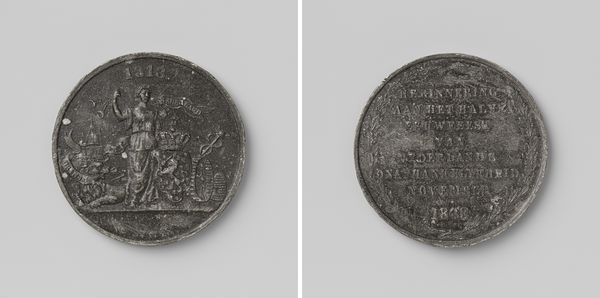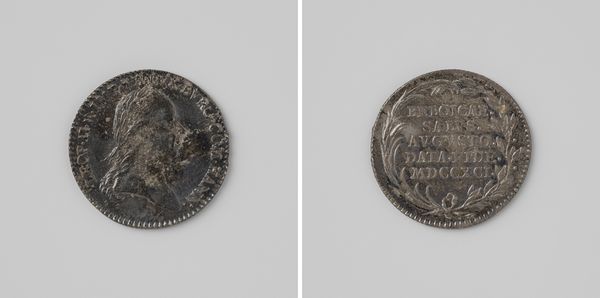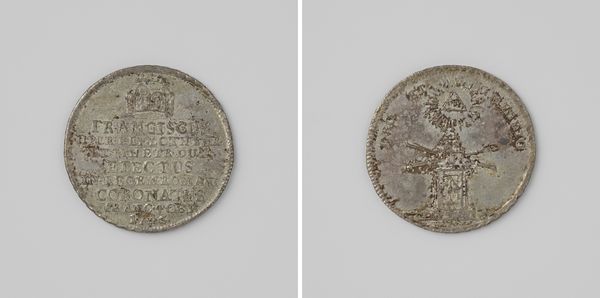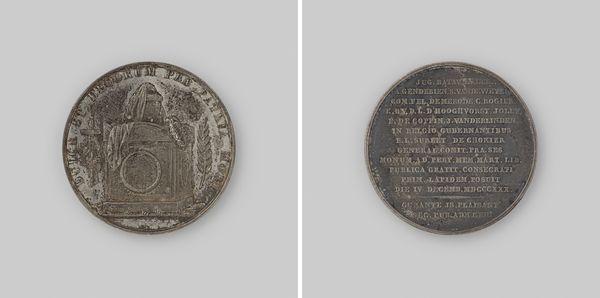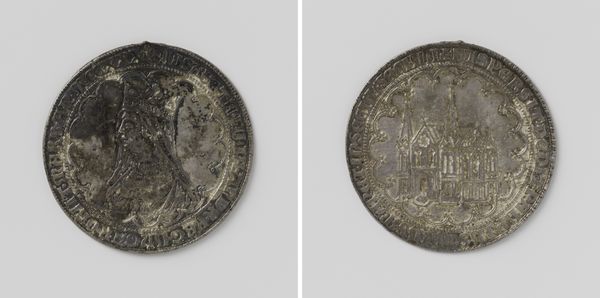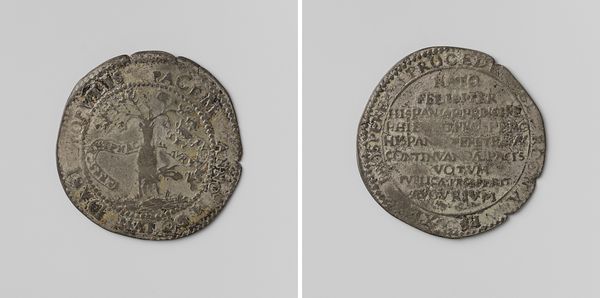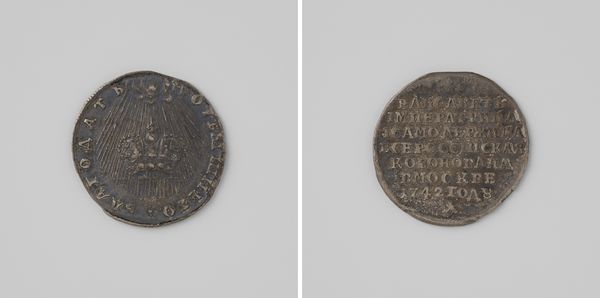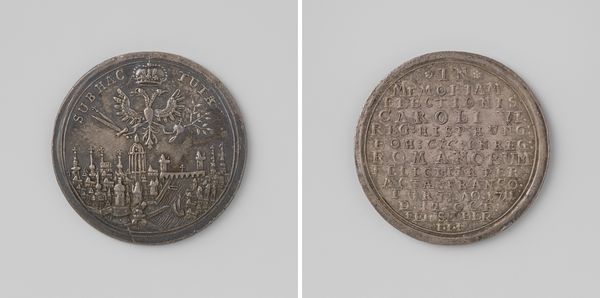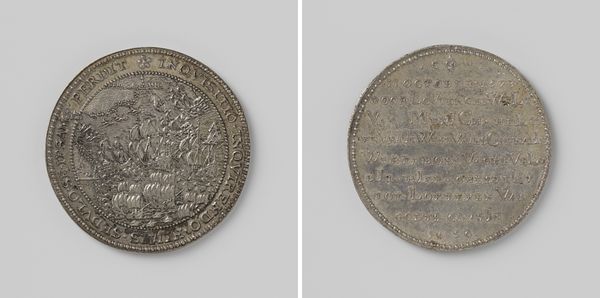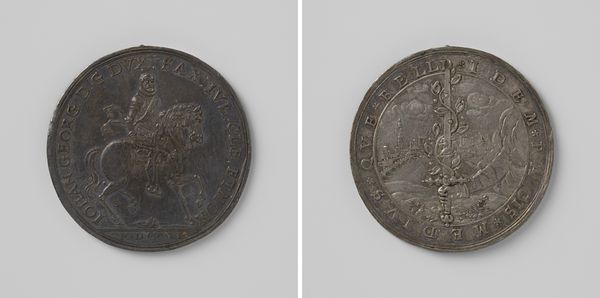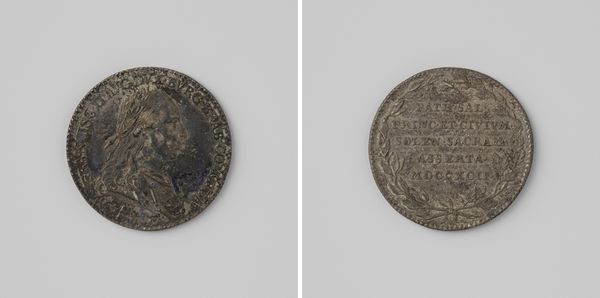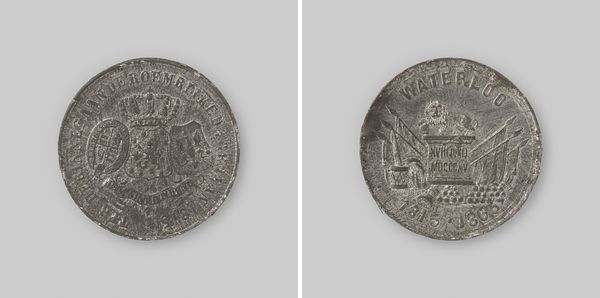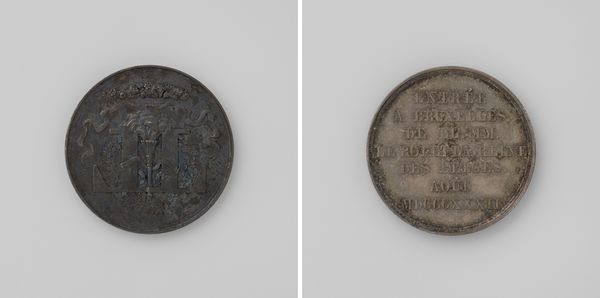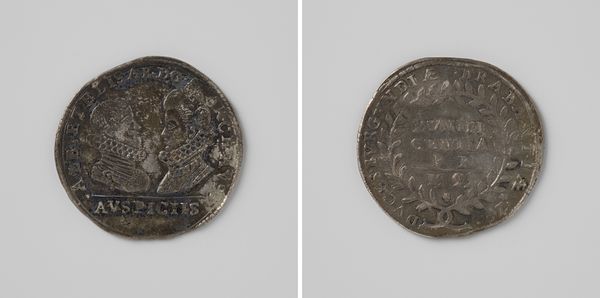
Inname van Parijs, ter ere van Alexander I, tsaar van Rusland en Frederik Willem III, koning van Pruisen 1814
0:00
0:00
anonymous
Rijksmuseum
print, metal, sculpture
#
neoclacissism
# print
#
metal
#
sculpture
#
sculpture
Dimensions: length 2 cm, width 1.7 cm, weight 2.63 gr
Copyright: Rijks Museum: Open Domain
Curator: This silver medal commemorates a significant moment: the capture of Paris in 1814. It’s titled "Inname van Parijs, ter ere van Alexander I, tsaar van Rusland en Frederik Willem III, koning van Pruisen", crafted to honor Alexander I, Tsar of Russia, and Frederick William III, King of Prussia. Editor: Right away, it feels strangely...understated. Given the grand subject, you'd expect a bolder visual statement, but the angel offering a wreath has a sort of delicate sadness about it. Does it speak to a weariness after so much conflict, maybe? Curator: That’s an interesting observation. Considering its Neoclassical roots, it adheres to a specific visual language – idealized forms, symbolic imagery. The angel bestowing the wreath suggests divine approval of the victory, echoing the era’s preference for allegorical representations. Editor: Allegory, sure, but what’s the *texture* of that victory? The other side just lays out text about which Kings showed up. Maybe it's functional rather than aspirational...like a fancy I-was-there souvenir. And the material – silver – feels more somber than celebratory. Curator: The medal's design attempts to convey not just victory, but also the restoration of order after the Napoleonic Wars. Look at the precision in the lettering, how neatly the message is presented; it underscores the return to a more structured European landscape. The circular format itself speaks of wholeness, resolution. Editor: I see that striving for order, the "let's get things back to normal" vibe. Yet, in that striving, it misses capturing any real...joy? Triumphant bombast? It is missing that Napoleon was exiled right after that. Maybe it isn’t about true victory, but simply about avoiding any more disasters. It's as if relief is masquerading as celebration. Curator: Relief is, perhaps, a powerful sentiment in itself, following years of conflict. And by focusing on rulers, rather than battles or soldiers, it shifts the narrative toward statesmanship and future peace, I guess. Editor: Hmm. Perhaps that explains its subtle disquiet, because in retrospect, the idea of order on such a medal has that sense of denial that just precedes a major political tremor. It's fascinating to consider the echoes of the past within such a contained object.
Comments
No comments
Be the first to comment and join the conversation on the ultimate creative platform.
